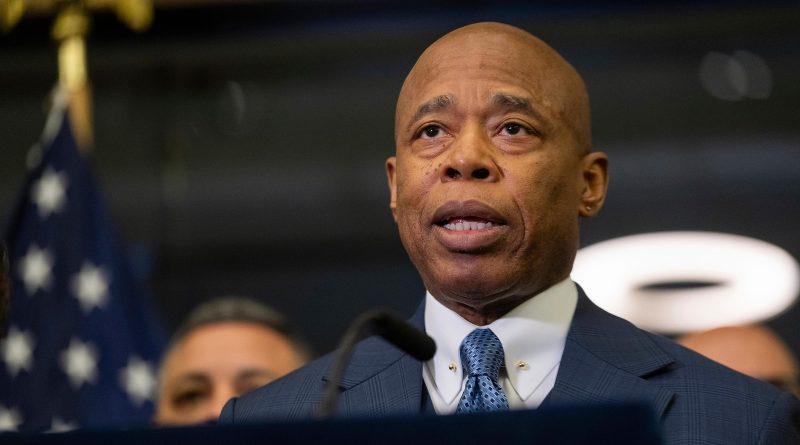NYC Mayor Declares Emergency Order Temporarily Suspending Portions of New Solitary Confinement Law
The mayor of New York City released an urgent decree on Saturday halting portions of a recent statute designed to outlaw solitary confinement in local prisons a day before it was scheduled to go into effect, citing worries for the well-being of staff and inmates.
Mayor Eric Adams declared a state of emergency and signed an order that suspended portions of the statute that established a four-hour time limit on detaining prisoners who present safety concerns in “de-escalation confinement” and restrict the use of restraints on prisoners during their transportation to courts or within prisons.
The four-hour threshold could only be surpassed in “exceptional circumstances.” In such instances, prisoners would be let go from de-escalation confinement “as soon as practicable” and when they no longer pose an immediate risk of severe harm to themselves or others, according to the mayor’s decree.
Adams also halted a provision of the statute that barred prison authorities from placing a prisoner in longer-term “restrictive housing” for more than a total of 60 days in any 12-month period. His order states that prison officials must assess a prisoner’s placement in restrictive housing every 15 days.
“It is of the utmost importance to protect the health and safety of all individuals in the custody of the Department of Correction and of all officers and individuals who work in the City of New York prisons and who transport individuals in custody to court and other facilities, and the public,” Adams wrote in his state of emergency declaration.
Adams vetoed the City Council’s approval of the bill, but the council overrode the veto in January.
City Council leaders did not immediately return messages seeking comment Saturday.
But council spokesperson Shirley Limongi issued a statement sharply criticizing Adams.
“Each day Mayor Adams’ Administration shows how little respect it has for the laws and democracy, it sets more hypocritical double standards for complying with the law that leave New Yorkers worse off. In this case, our city and everyone in its dysfunctional and dangerous jail system, including staff, are left less safe. The reality is that the law already included broad safety exemptions that make this ‘emergency order’ unnecessary and another example of Mayor Adams overusing executive orders without justification,” the statement said.
The bill had been introduced by New York City Public Advocate Jumaane Williams, who argued solitary confinement amounts to torture for those subjected to lengthy hours in isolation in small jail cells.
Williams and other supporters of the new law, including prominent members of New York’s congressional delegation, have pointed to research showing solitary confinement, even only for a few days, increases the likelihood an inmate will die by suicide, violence or overdose. It also leads to acute anxiety, depression, psychosis and other impairments that may reduce an inmate’s ability to reintegrate into society when they are released, they said.
Adams has insisted there has been no solitary confinement in jails since it was eliminated in 2019. He said solitary confinement is defined as “22 hours or more per day in a locked cell and without meaningful human contact.” He said de-escalation confinement and longer-term restrictive housing are needed to keep violent prisoners from harming other prisoners and staff.
Jail officials, the guards’ union and a federal monitor appointed to evaluate operations at city jails objected to portions of the new law, also citing safety concerns.
The law places a four-hour limit on isolating inmates who pose an immediate risk of violence to others or themselves in de-escalation units. Only those involved in violent incidents could be placed in longer-term restrictive housing, and they would need to be allowed out of their cells for 14 hours each day and get access to the same programming available to other inmates.
Adams’ state of emergency declaration will remain in effect for up to 30 days or until it is rescinded, whichever is earlier, with 30-day extensions possible. The order suspending portions of the new law will be in effect for five days unless terminated or modified earlier.

